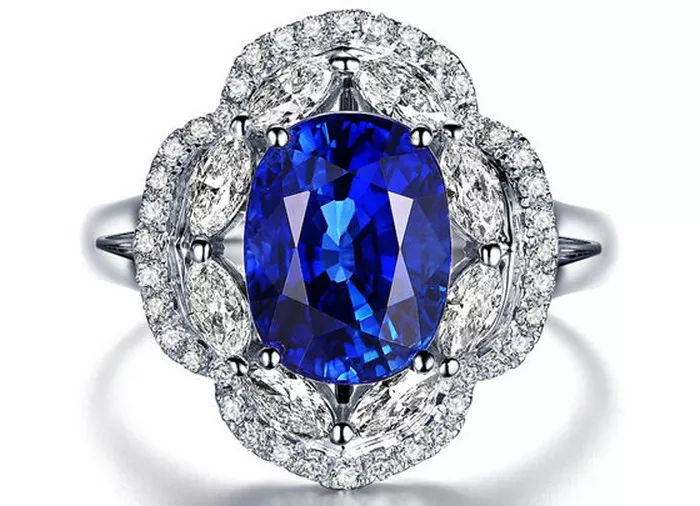The idea of substituting one gemstone for another in jewelry is a common consideration. When it comes to replacing yellow sapphire with topaz, there are numerous factors to take into account. These range from the physical characteristics of the gemstones, their aesthetic qualities, to their market value and cultural significance.
Physical Properties
Hardness
Yellow Sapphire: Yellow sapphire is a type of corundum, which has a hardness of 9 on the Mohs scale. This high hardness makes it quite durable and resistant to scratches. It can withstand the rigors of daily wear without significant damage.
Topaz: Topaz has a hardness of 8 on the Mohs scale. While it is also relatively hard, it is not as hard as yellow sapphire. This means that topaz may be more prone to scratches over time, especially if it comes into contact with substances or objects that are harder than it. For example, if worn in a ring, it may be more likely to get scratched on a daily basis compared to yellow sapphire.
Cleavage and Fracture
Yellow Sapphire: Sapphires generally have a conchoidal fracture, which is a smooth, curved fracture surface. They do not have a distinct cleavage, which contributes to their overall durability.
Topaz: Topaz has a perfect basal cleavage. This means that it can break more easily along a flat plane parallel to its base. This cleavage property needs to be considered when setting the gemstone in jewelry. A sharp impact or improper handling may cause the topaz to split along its cleavage plane, which is less likely to happen with yellow sapphire.
Color and Transparency
Yellow Sapphire: The color of yellow sapphire is due to the presence of iron. It typically has a vivid, saturated yellow color. The transparency of yellow sapphire can range from translucent to transparent. High – quality yellow sapphires are highly transparent and have a brilliant luster.
Topaz: Topaz can also come in a yellow color. However, the color may be less intense compared to yellow sapphire in some cases. Topaz can have a wider range of colors including blue, pink, and colorless, but when considering it as a substitute for yellow sapphire, the yellow variety is relevant. Topaz can also be highly transparent, but the quality of transparency can vary depending on the quality of the stone.
Aesthetic Considerations
Color Appearance
While both yellow sapphire and yellow topaz are yellow in color, there are nuances. Yellow sapphire often has a deeper, more “golden” hue, especially in higher – quality specimens. The color of yellow topaz can be more of a pale yellow or lemon – yellow in some cases. When used in jewelry, this difference in color can create different visual effects. For example, in a pendant, a yellow sapphire may create a more luxurious and rich look, while a yellow topaz may give a more delicate and light – hearted appearance.
Brilliance and Sparkle
Yellow Sapphire: Due to its high refractive index and hardness, yellow sapphire has a high level of brilliance and sparkle. It reflects light in a way that gives it a vivid and eye – catching appearance.
Topaz: Topaz also has a certain level of sparkle, but it is not as intense as that of yellow sapphire. The refractive index of topaz is lower, so it may not have the same “fire” or sparkle when cut in the same way as a yellow sapphire. However, well – cut topaz can still be very attractive and show a nice play of light.
Market Value and Rarity
Yellow Sapphire
Yellow sapphire is relatively rare, especially in larger sizes and of high – quality color and clarity. It is a precious gemstone, and its price can be quite high, depending on factors such as carat weight, color, clarity, and cut. In the gemstone market, yellow sapphires from certain regions like Sri Lanka are highly prized.
Topaz
Topaz is more abundant compared to yellow sapphire. It is generally more affordable. However, there are some rare varieties of topaz, such as imperial topaz which is a deep orange – yellow color. But even the regular yellow topaz is much more accessible in terms of price. The market value difference means that if cost is a factor, topaz can be a more budget – friendly option.
Cultural and Symbolic Significance
Yellow Sapphire
In some cultures, yellow sapphire has significant symbolic meaning. In Vedic astrology, for example, yellow sapphire is associated with Jupiter and is believed to bring good fortune, wealth, and knowledge. It has been highly regarded in certain traditional and cultural practices for centuries.
Topaz
Topaz also has cultural significance. In some cultures, it has been associated with strength and beauty. However, its symbolic meaning is not as well – defined or as widespread as that of yellow sapphire in some cultural contexts.
Conclusion
In conclusion, whether one can wear topaz instead of yellow sapphire depends on various factors. From a physical perspective, topaz is less hard and has a different cleavage property compared to yellow sapphire, which may affect its durability. Aesthetically, there are differences in color, brilliance, and sparkle. In terms of market value, topaz is generally more affordable and more abundant. Culturally, yellow sapphire has more specific and well – known symbolic meanings in some traditions. However, if a person is looking for a more budget – friendly alternative with a similar color that can still create an attractive piece of jewelry, topaz can be a viable option. It is important to consider all these aspects when making a decision about substituting topaz for yellow sapphire in jewelry.
Related topic:
- What Is Lab Created White Sapphire
- Can We Wear Diamond and Yellow Sapphire Together
- Citrine and Yellow Sapphire: Which One Should You Buy?


